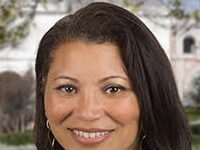 The Annenberg School for Communication and Journalism at the University of Southern California in Los Angeles announced that it will conduct an annual survey and grade Hollywood entertainment companies on their diversity efforts. The Comprehensive Analysis and Report on Diversity (CARD) will offer a report card on how well major entertainment companies are doing in fostering diversity in hiring, casting, and content.
The Annenberg School for Communication and Journalism at the University of Southern California in Los Angeles announced that it will conduct an annual survey and grade Hollywood entertainment companies on their diversity efforts. The Comprehensive Analysis and Report on Diversity (CARD) will offer a report card on how well major entertainment companies are doing in fostering diversity in hiring, casting, and content.
The report card will examine content diversity in areas such as gender, race/ethnicity, LGBT representation, etc. The effort will also include an award program honoring those in the industry who have fostered greater diversity.
Professor Stacy Smith, who leads the Media, Diversity, & Social Change project at the university, stated that “in 2013, there were 17 films among the top 100 grossing movies that featured not one Black or African-American speaking character. Across 600 popular films between 2007 and 2013, just two were directed by black women. Clearly, not one group or one company is solely responsible for the lack of diversity on screen or behind the camera. We need a broader look at who is doing well and who needs to step up their game.”











Another example of redundant scholarship because anyone with an inkling of a brain can clearly see the lack of Black Americans within the entertainment industry. What this study should have examined is the entertainment decision makers and their rational for treating Black American actors disparately. For those who dissent, I would suggest that you read the book titled “An Empire of Their Own: How the Jews Invented Hollywood”(Gabler, 1989) to further understand my point.
More important, I would suggest Dr. Smith along with the Annenberg School of Communication and Journalism conduct a robust study on USC and lack of diversity as it specifically pertains to its pathetic 5 percent student enrollment of Black American students. Further Dr. Smith why don’t you write an “Open Letter” to all Hollywood decisions makers about your findings under the guise of proactive scholarship and see if it will impact their actor selection for the “Big Screen”.
Michael: What you have stated is true in reference to the bogus report. This report by Dr. Smith reflects the price that Africans in the Diaspora have to pay for integration.
Dr. Smith won’t write a letter to the Hollywood decision makers about his findings because he is all about maintenance of the status quo.
I just don’t see how this report will bring about any real changes. Businesses know if they are diversified or not. Those who are probably won’t bother to complete the survey, and those who are not, will remain so just because they can! Folks, we don’t really need a study, survey or report on this one.
Agree. This is very much “fluff”. BTW…NOT an issue with LGBT in Hollywood…so WHY include. Waters down diversity, which are crumbs anyway, even more.
Imagine the arrogance of:
a. those who say “no need” know and/or can envision the extent of the landscape that can/could benefit from the finite data that the survey will generate;
b. those who can only imagine ‘survey’ as a mechanism as opposed to a verb (and they r arrogant because?)
Congrats to Dr. Smith and the MD&SC project for preparing to generate data, juxtaposed with the actual ‘N’ of the populations who actually constitute these United States, and quantify these disparities!!!! BTW: Diversity begins with specificity, detail and data, then the move to what folk have in common. Respect for uniqueness precedes, celebration of commonalities.
Re: Bev;
It’s quite obvious that you have grossly misinterpreted the gist of the previous comments. In my view, this occurs when you’re intricately linked to the establishment or established order. I would suggest that you revisit your definition on “diversity” because it’s narrow in scope. Have you ever heard of “diversity of ideals” or “ideological diversity”? Please spare us with the rudimentary statistics barb. As a result, the obvious entertainment problem (along with many others) will continue to be ongoing.
Many of these so-called Black scholars situated at these HWCUs (Historically White Colleges and Universities) are more concerned about being “accepted” by their White, Asian, and Latino colleagues as compared to producing a body of academic work will qualitatively and quantitatively challenge the status quo. Last point, let’s see how the Hollywood decision makers respond when you tell them about the importance of “Respect for uniqueness [sic] and celebration of commonalities”. I would venture in saying that your entire commentary is analogous to neoliberalism and political correctness at its finest.